New ESI Bosnia report - Balkan energy - Vacation in Kosovo
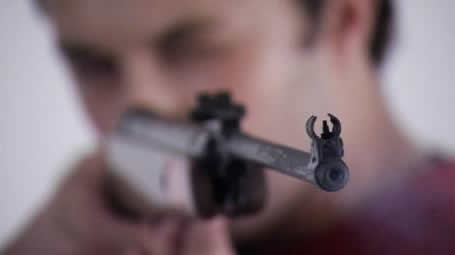 |
|
Return to Europe: the documentary |
Dear friends of ESI,
South East Europe today is not what it seems.
What may look at first like a gun pointed at you is in fact an artist performing in the Faculty of Art in the Bosnian town of Banja Luka. The faculty building was used until a few years ago as military barracks. Today these buildings are part of the university. The army of Republika Srpska no longer exists. Since 2006 Bosnia and Herzegovina has a unified, professional army of no more than 10,000 soldiers, participating in peace-keeping missions around the world.
The artist, Mladen Miljanovic, was born in 1981. He attended the Reserve Officer School of Republika Srpska. He then enrolled at the Academy of Arts in Banja Luka. From October 2006 until July 2007, he retreated for nine months of isolation to the former barracks as part of an artistic project to "decontaminate spaces".
Things change in the Balkans. First images are often misleading. It is vital to look again, and not fall victim to preconceived ideas. This is the theme of this newsletter.
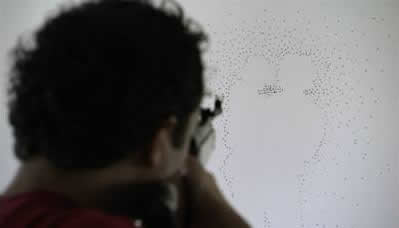
Fortress Doboj
Only a few years ago the municipality of Doboj was known for the extreme (Serb) nationalism of the people who controlled it. Today it is a very different place, as we show in our new report: The Bosnian Fortress – Return, energy and the future of Republika Srpska.
What we have found after 18 months of research in Doboj belies the popular image of Bosnia and Herzegovina as a country on the verge of renewed conflict. All sixteen mosques in the municipality have been rebuilt. More than half the pre-war Bosniak population has returned. The current (SDS) mayor is actively seeking the electoral support of Bosniak returnees. A third of students in the local higher-education institutions are Bosniaks. There is no inter-ethnic violence. The local police and judiciary are multi-ethnic. These changes have been no less profound than those which transformed Western Europe in the 12 years after World War II.
At the same time, unemployment in Doboj – as across Bosnia – remains extremely high. Yet against a depressing economic picture, there are also some grounds for hope. Doboj is the site of the one of the largest energy projects in the Western Balkans, which will help cement Bosnia's place in the regional economy.
Our report concludes that the prosperity of Doboj depends on the wider economic success of Bosnia and Herzegovina, and on its ability to integrate into wider European markets. This process of functional economic integration works only when the EU itself is proactive. To find out more please visit our picture story Balkan energy and the future of Bosnia.
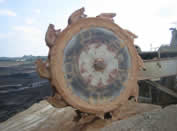 |
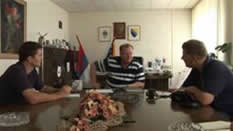 |
||
|
Stanari coal mine in Doboj |
Enis Suljkanovic, municipal assembly president Doboj |
The image of Bosnia and an overdue U-turn
In early November, we published a discussion paper on the recent political crisis in Bosnia: Worst in Class. There was press coverage in Bosnia and internationally. We received direct feedback from policy makers, including foreign ministers, from across Europe. In our last newsletter we had recommended:
"As a way out of the current crisis a transparent debate on all aspects of police reform is required. In the meantime, we urge the EU to rethink its policy of holding up the signature of an SAA with Bosnia over an issue where Bosnia has made significantly more progress than many of its neighbours, including Serbia."
On 4 December, EU Enlargement Commissioner Olli Rehn visited Bosnia to initial a Stabilisation and Association Agreement. A recent article by Birn – Bosnia's Leaders Discover the Joys of Compromise – noted:
"The two archrivals, Bosniak member of the BiH Presidency and leader of the Party for BiH, SBiH, Haris Silajdzic, and RS Premier and head of the SNSD, Milorad Dodik, substantially modified their positions and toned down their rhetoric. For its part, the EU seems to have dropped its insistence on a unified BiH police service. The EU's new stance appears to reflect an argument put forward in a recent report by the European Stability Initiative (ESI), a think-tank which specializes in Balkan issues.
In its report, the ESI argues that former High Representative Paddy Ashdown and his EU partners mismanaged police reform in Bosnia and increased political tension by insisting on only one out of several possible options for the reorganization of the police service. The EU appears to have taken advantage of the resolution of the latest political crisis by giving credence to vague but positive statements on police reform which have been made by representatives of the ruling coalition and by modifying its own position. EU policy is now based on allowing Bosnia's leaders to find a common solution for police reform on their own."
We are obviously very happy about this turn of events. This is an important step forward, both for Bosnia and for the EU. Now it is vital that the SAA with Bosnia is ratified in early 2008.
We also hope that this will help correct the misleading image of today's Bosnia as a country on the verge of collapse (and thus requiring never-ending international supervision). For a description of this practice see the Rumeli Observer How criminals rule Bosnia.
 |
 |
||
|
Film: Bosnia vs. Croatia in Sarajevo |
Bosnian Rock band Dubiosa |
Return to Europe – the film
It is one of the most ambitious documentary film projects undertaken on the Balkans in recent years: Erste Stiftung, Austrian broadcaster ORF and German-Swiss-Austrian channel 3sat are funding a ten-part documentary series on the Balkans, based on ESI research. You can check out the 4 minute Trailer - Return to Europe.
Under the theme Return to Europe, ESI researchers and five Austrian film directors are traversing the region, from Albania to Istanbul. The series will be shown on Austrian, German and Swiss TV from April 2008.
Background material, interviews with key regional players and the research on which these films are based will also be put on the official website of the series: www.esiweb.org.
Kosovo: the book
 |
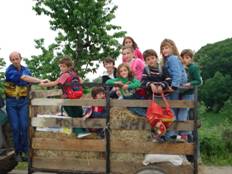 |
||
|
ESI's Verena, co-author of Kosovo |
Kosovo: the book |
ESI analysts rarely have time to write books. Senior analyst Verena Knaus is an exception. With impeccable timing – given that world interest in Kosovo is at its peak – and optimism about Kosovo's untapped tourist potential, she and co-author Gail Warrander published the first-ever-guide-in-English-that-is-only-about-Kosovo. It shows that there more things besides its complex politics that make Kosovo interesting – a timely reminder!
If you are looking for an imaginative Christmas present or if you want to plan your next Easter vacation, we recommend that you get this book (Bradt guide to Kosovo) and book a flight to Pristina.
Best wishes,
![]()
Gerald Knaus

Gerald Knaus
